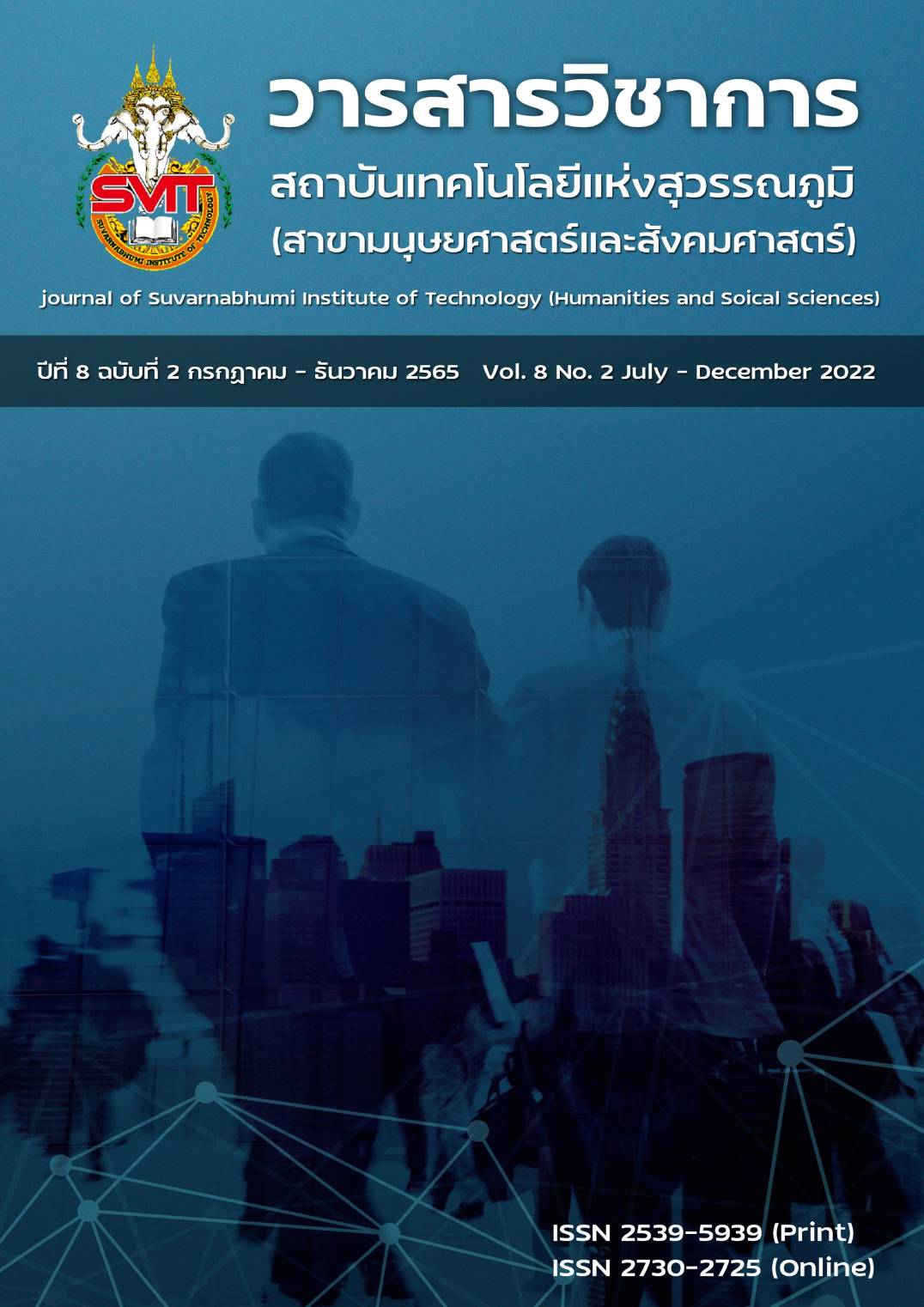CRYPTOCURRENCY PLATFORM SELECTION IN THAILAND
Keywords:
Cryptocurrency Trading, Selection, PlatformAbstract
This research aimed to investigate cryptocurrency platform selection of investors who trade cryptocurrency. Data were collected online from 648 people with the age of 18 years and above who use cryptocurrency platforms. The study result found education level, income, how to use, and platform could forecast the model correctly 72%. Suggestions for research result application are as follow: In terms of business suggestions, platform developers who would like to promote attitude towards using platforms should strengthen perceived usefulness by letting users perceive that the platforms enable them to trade cryptocurrency at any place and any time, including encouraging users to perceive that the platforms have popular currencies and diversity of currencies. In addition, platform developers should enhance perceived ease of use in applying and using by oneself, such as preparing public relations media to promote perceived usefulness and perceived ease of use to ensure users have a positive attitude towards how to use the platforms. In terms of academic suggestions, E-banking experience and E-wallet experience were not brought to this study. Thus, an additional study on this matter should be conducted in future research.
References
Chutipat, W., & Sonsuphap, R. (2020). Applying Blockchain for Transparency in Real Estate Sector. NACC Journal, 13(2), 30-40.
Cochran, W. G. (1977). Sampling techniques. New York: John Wiley & Sons.
Coinmarketcap. (2021). Cryptocurrencies. Retrieved from https://coinmarketcap.com.
Engel, J. F., Blackwell, R. D., & Miniard, P. W. (1990). Consumer Behavior. USA: Dryden Press.
Khitasanga, S., & Kraiwanich, T. (2021). Factors Affecting Cognition in Defi: Decentralized Finance. In The 16th RSU National Graduate Research Conference, (pp. 2022-2029). Thailand: Rangsit University.
Office of the Royal Thai Council. (2019). Computer terminology and information technology Royal Thai Council edition. Retrieved from https://www.facebook. com/pg/RatchabanditThai /photos/?tab=a lbum&albumid=2527569647301115.
Limna, P., Kraiwanit, T., & Siripipatthanakul, S. (2022). The Growing Trend of Digital Economy: A Review Article. International Journal of Computing Sciences Research, 6.
Schiffman, L. G., & Kanuk, L. L. (1987). Consumer Behavior. New Jersey: Prentic-Hall.
Srinuan. K. (2016). A Study of Personal Characteristics Investment Behaviors and Investment Motivation of Thai Investors Affecting Decision Making in the Stock Exchange of Thailand. Master thesis, Faculty of Business, Bangkok University.
Teerasakdapong. A. (2016). An analysis of factors affecting the Intention to use bitcoin. Master of Science, IT Policies and Management, College of Innovation, Thammasat University.
The Securities and Exchange Commission. (2021). Weekly report of the digital asset market summary. Retrieved from https://www.sec.or.th/TH/Pages/WEEKLYREPORT-2564-08.aspx.
Worakitpokatorn, P. (1996). Principles and Theory of Communication. Nonthaburi: Sukhothai Thammathirat Open University Press.
Downloads
Published
Issue
Section
License
Copyright (c) 2022 Suvarnabhumi Institute of Technology

This work is licensed under a Creative Commons Attribution-NonCommercial-NoDerivatives 4.0 International License.
The articles published are copyrighted by the Sarasas Journal of Humanities and Social Science. The opinions expressed in each article in this academic journal are those of the individual authors and do not reflect the views of Sarasas Suvarnabhumi Institute of Technology. The authors are solely responsible for all aspects of their respective articles. Any errors or inaccuracies in the articles are the sole responsibility of the authors.



